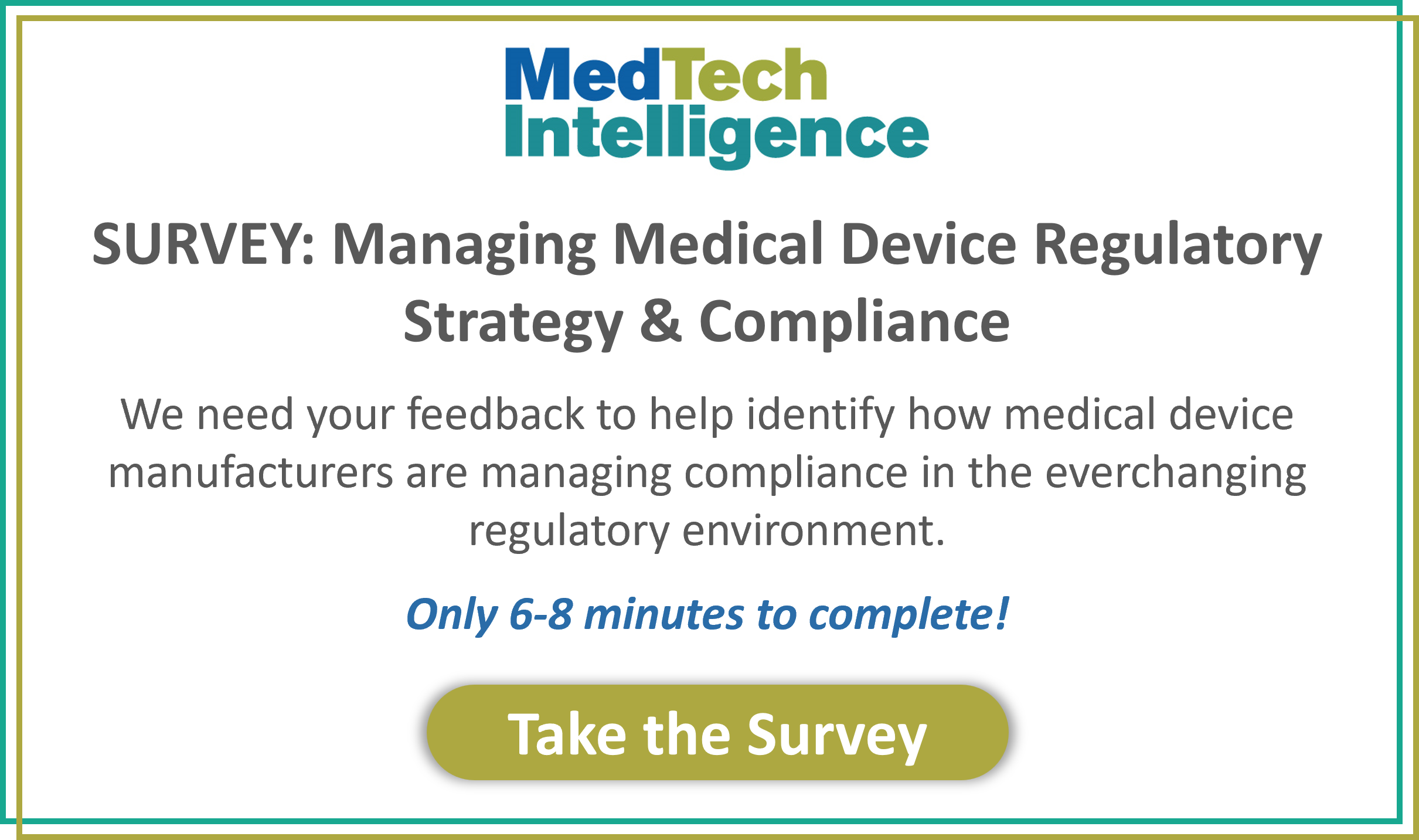I hope all of the doctor’s readers had a fabulous New Year’s celebration with family and friends. There is nothing quite like welcoming in the New Year with all of the hopes and aspirations that come with the rebirth of a year. As the device industry greets the New Year, there are significant regulatory challenges on the horizon. For example, migration in mass is occurring to the ISO 13485:2016 platform; EU 2017/745 (EU Medical Device Regulation) is now the law of many lands in the European Union; the final stages of UDI compliance is at hand in the United States; the Medical Device Single Audit Program (MDSAP) is upon us; and the American economy is on fire (in a good way, of course). However, as device industry quality and regulatory professionals, we are still tasked with the day-to-day challenges of keeping our establishments, or in the case of Dr. D “clients”, in compliance with all of the applicable quality, regulatory and statutory requirements. After all, that is why we are making the big bucks (just kidding). Additionally, for device establishments wishing to play in the medical device industry sandbox in the United States, that box is still owned by FDA. Simply stated, it is the FDA’s sandbox, so the agency sets the rules. For device establishments and their Chief Jailable Officers (CJO) that end up in the agency’s dog house, even for just a brief period of time, the challenges of returning to being in the good graces of FDA is still going to be a daunting task. In fact, that task will continue to be a painful one to ensure offending establishments learn from their mistakes. Sticking one’s head in the proverbial sand and hoping the FDA will just go away, although clearly an antithetical(look-it-up) approach to compliance, will eventually come back to bite even the most diligent of device establishments in the proverbial butt. Happy New Year and enjoy!
Warning Letter – November 16, 2017
For the first Devine Guidance of 2018, the doctor would like to visit the perils associated with failing to report adverse events when serious patient injuries occur. Remember, device establishments do not necessarily have to rack up a significant number of Form 483 observations to be awarded that prized agency warning letter. Sometimes all it takes is one or two big observations coming from failing to comply with Part 803 (MDRs) or Part 806 (corrections and removals). The offending establishment referenced in this week’s guidance, in the opinion of the FDA investigator, failed to report a handful of serious adverse events as required by §803(a)(1). Dr. D guesses the agency was not thrilled with the establishment’s response and responded with the FDA’s infamous, “We reviewed your firm’s response and conclude that it is not adequate.” Can you say warning letter?
Warning Letter Excerpt
Observation One (1) “Failure to submit a report to FDA no later than 30 calendar days after the day that the firm received or otherwise became aware of information, from any source, that reasonably suggests that a device that the firm markets may have caused or contributed to a death or serious injury, as required by 21 CFR 803.50(a)(1).
For example: C060416, C110116, and C061915 describe the patient developing a pin site infection while receiving treatment with the Digit Widget device, requiring the use of prescribed antibiotics. Complaint C030117 describes the patient sustaining an infection for which surgical removal of the Digit Widget device was conducted. The above described events reference injuries for which medical intervention was conducted. We believe that the medical intervention was necessitated to preclude permanent impairment of a body function or permanent damage to a body structure. A serious injury MDR should have been submitted for each of the above referenced complaints.
We reviewed your firm’s response dated July 24, 2017 and conclude that it is not adequate. Although the firm initiated a corrective action plan, CAR 114-015, and states that it has a person qualified to make a medical judgement, it did not provide information regarding its decision making process used to determine that the events do not meet the definition of a reportable serious injury according to 21 CFR 803.3. In addition, the firm did not submit individual MDRs for Complaints C030117, C060416, C110116, C061915 and C091115
21 CFR, Part 803.50 (a)(1) – If I am a manufacturer, what reporting requirements apply to me?
(a) If you are a manufacturer, you must report to us the information required by 803.52 in accordance with the requirements of 803.12(a), no later than 30 calendar days after the day that you receive or otherwise become aware of information, from any source, that reasonably suggests that a device that you market:
(1) May have caused or contributed to a death or serious injury.
Compliance for Dummies
Customer complaints and the review of customer complaints to ensure they do not rise to the level of the need to file a Medical Device Report (MDR), electronically of course, is always going to be a challenge. That is why having a well written procedure that delineates types of events required to be reported as a MDR (device establishment specific) and a good decision tree is warranted. Make no mistake, considering the variabilities associated with reporting in multiple regulatory environments, Dr. D strongly recommends having a dedicated procedure for our dear friends from FDA (Part 803 compliant of course). Additionally, procedures can be added for Health Canada, the EU, Japan, Australia, Brazil, Mexico, China, etc.
Additionally, it is imperative that an individual with a medical/clinical background review complaints for the need to report as an adverse event. The doctor does apologize for slighting any of the quality and regulatory professionals that read the DG column; however, the FDA is asking about the qualifications of individuals making the reporting decisions. If M.D., RN, DO, Ph.D. or other individuals with a CV that supports applicable medical/clinical experience, convincing an agency investigator that the review for the need to report an adverse event was adequate, is going to be a challenging endeavor indeed.
Furthermore, come hell or high water, when a decision is made to file a MDR, the establishment needs to file within 30 days, not 45 days, not 60 days, not 31 days. The requirement is 30 days and failure to do so can result in a Form 483 observation when the FDA finally drops by for that friendly cup of coffee and an inspection.
Finally, regardless of whether your establishment has never had the need to file a MDR or never expects to have to file a MDR, the doctor strongly suggests that you establish your webtrader account that will allow the filing of eMDRs with FDA. The process is quite challenging and is a task that cannot be accomplished in a couple of hours. In fact, device establishments have spent many frustrating hours, days, weeks and even a couple of months to perform the burdensome task needed to file one MDR electronically. Good luck!
Takeaways
For this week’s guidance, the doctor will leave the readers with four takeaways. One: The best practice is to have a stand-alone procedure that addresses the FDA’s MDR reporting requirements. Two: Ensure a qualified individual with the appropriate medical/clinical experience reviews complaint for the need to report adverse events as an MDR. Three: If your establishment has not established an eMDR account (webtrader) with FDA, there is no time like the present. Four: Make sure MDRs are always filed within the allotted timeframe. In closing, thank you again for joining Dr. D, and the doctor hopes you found value (and some humor) in the guidance provided. Until the next installment of DG, cheers from Dr. D., and best wishes for continued professional success.
References
- Code of Federal Regulation. (April 2017). Title 21 Part 803: Medical device reporting. Washington, D.C.: U.S. Government Printing Office.
- Code of Federal Regulation. (April 2017). Title 21 Part 820: Quality system regulation. Washington, D.C.: U.S. Government Printing Office.
- Devine, C. (2011). Devine guidance for complying with the FDA’s quality system regulation –21 CFR, Part 820. Charleston, SC: Amazon.
- Devine, C. (2013). Devine guidance for managing key attributes of a FDA-compliant quality management system – 21 CFR, Part 820 Compliance. Charleston, SC: Amazon.
- FDA. (November 16, 2017). Inspections, Compliance, Enforcement, and Criminal Investigations. Hand Biomechanics Lab, Inc. Accessed January 7, 2018. Retrieved from https://www.fda.gov/ICECI/EnforcementActions/WarningLetters/2017/ucm587328.htm






